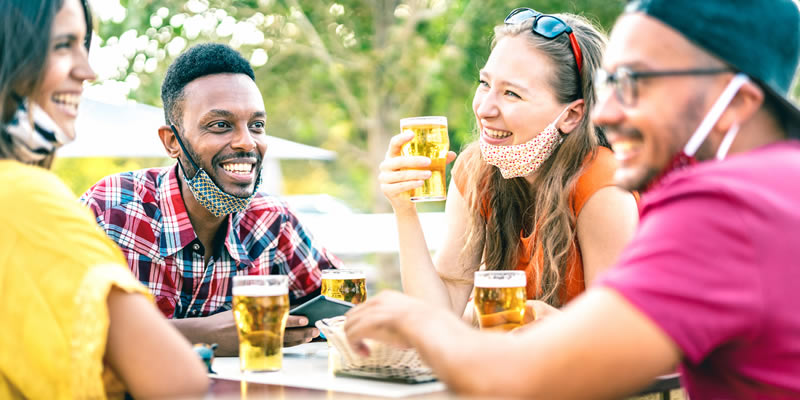Social distancing in pubs is almost impossible due to the effects of alcohol, research suggests.
Researchers found that strangers who consume alcohol are more likely to move physically closer to each other, even after initially keeping their distance.
Experts at the University of Illinois Urbana-Champaign conducted a study amongst 212 young, healthy drinkers and compared the effects of alcoholic and non-alcoholic drinks on social distancing between strangers and friends.
- Top expert warns that Long COVID is America’s next big health crisis
- One in four people should expect mild symptoms after COVID vaccine
The results show that once intoxicated, strangers drew closer together, something which researchers said has “potentially important implications for public health”.
With pubs re-opening indoors to customers this week, and all forms of social distancing set to be lifted on June 21, the findings suggest that trying to implement social distancing in pubs is virtually impossible.
Half of the study participants drank with a friend while the remainder drank with a stranger. Researchers used technology to measure the distance between them and found that while friends tended to get closer whether they had drank alcohol or not, strangers only moved closer if they were intoxicated.
Study author Laura Gurrieri said: “This study shows that over time, alcohol reduces physical distance between people who are not previously acquainted.
“This finding is particularly important in the context of the Covid-19 pandemic because it suggests that alcohol might facilitate virus transmission and impede the following of social distancing guidelines.”
- COVID-19 causes neurological damage but does not infect the brain
- Obesity linked to severe COVID-19 infection
The study also found that those who consumed non-alcoholic drinks with strangers did not move significantly closer.
The lab-type conditions of the study, compared to a pub, also raised concerns.
Catharine Fairbairn, a professor of psychology at the university who led the research, said: “Folks would likely draw even closer to one another in a crowded bar with loud music when compared with our laboratory environment.”
The findings of the study have been published in the Proceedings of the National Academy of Sciences.









